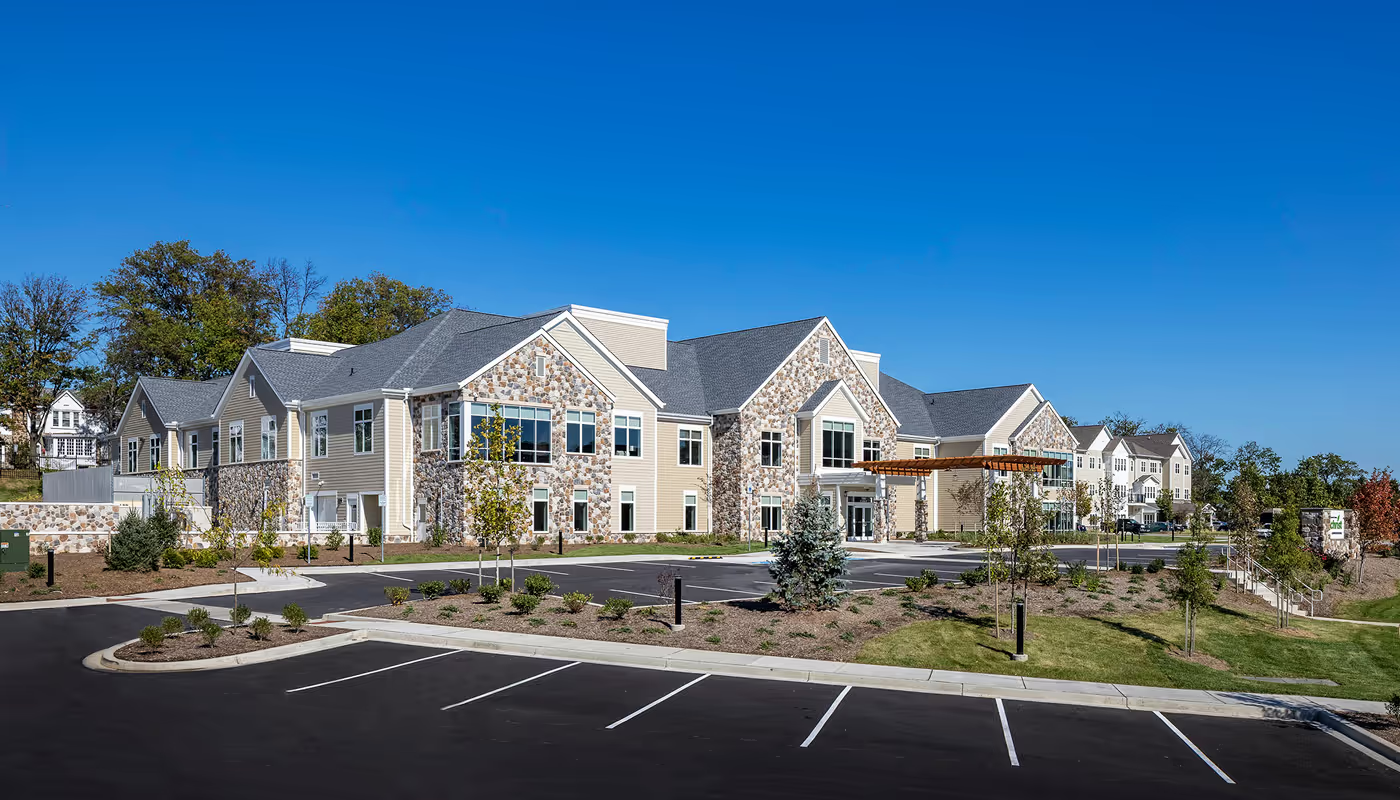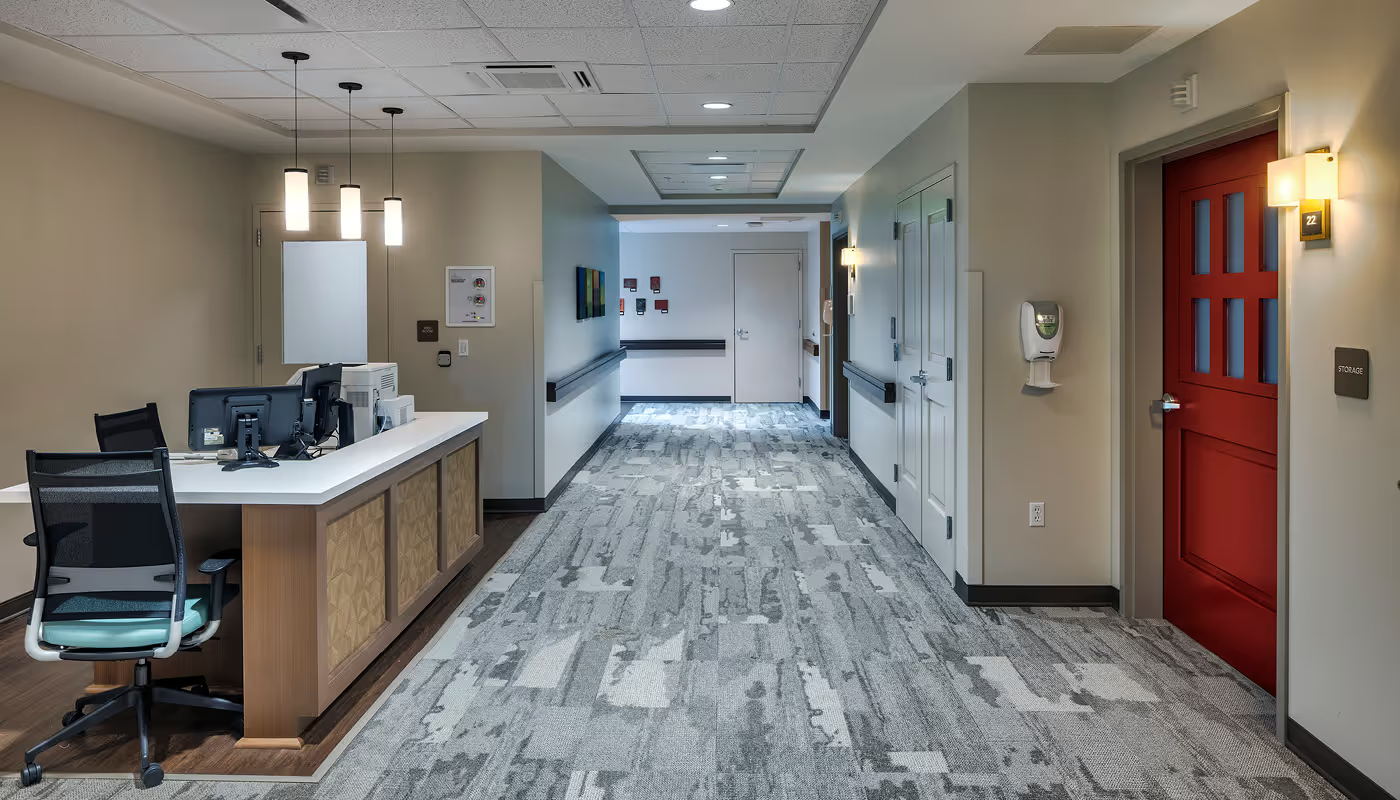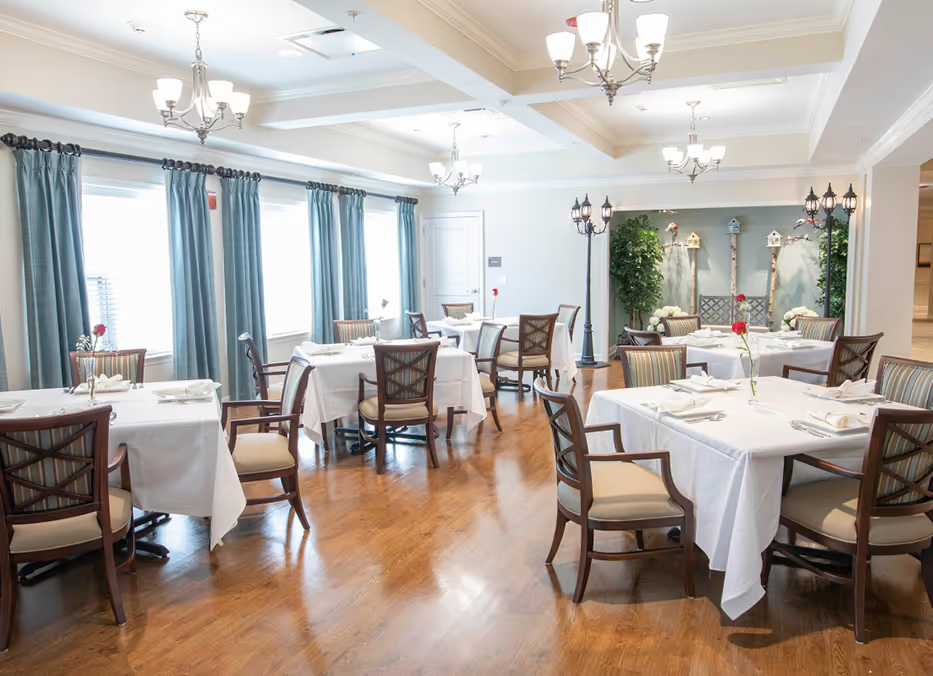
Gilchrist Center Baltimore
Where baseball fans once cheered for the Orioles, Baltimore residents now find comfort and care in their final days. The Gilchrist Hospice at Stadium Place has given this historic site a new purpose, demonstrating how architecture can serve essential human needs while preserving community connections. The facility's integration into a larger mixed-use development creates an uncommon setting for end-of-life care—one where the sounds of children playing baseball and seniors walking the grounds remind patients and families of life's continuity.

Master Plan Origins
In 2000, Govans Ecumenical Development Corporation (GEDCO) partnered with Moseley to reimagine Memorial Stadium's 30-acre site as a mixed-use development for Baltimore's aging population. The master plan integrates affordable and market-rate senior housing with medical facilities and community spaces.
Buildings encircle a central green space, maintaining the site's role as a community hub. Pedestrian paths link residential areas to medical services, retail spaces, and the YMCA, while preserving views of downtown Baltimore. The Gilchrist Hospice facility concludes this development, fulfilling GEDCO's vision for elder care services.
Design Response to Site
The building adapts to its sloped site, rising two stories at the athletic field entrance while maintaining single-story scale near residential neighbors. Three gabled sections mark the main façade. Patient wings extend north, creating a sheltered courtyard.
Stone and wood materials complement adjacent buildings. Windows frame baseball games, walkers on paths, and city views, connecting patients to daily community life.
Program and Purpose
The 22-bed hospice balances medical requirements with home-like comfort. Eighteen adult rooms and four pediatric suites occupy distinct wings, with space reserved for eight additional beds. This layout enables specialized care delivery for each age group.
The facility replaces Gilchrist's former three-rowhouse location, expanding their ability to serve Baltimore residents regardless of payment ability. The design proves that medical facilities can strengthen rather than separate from their communities—a fitting legacy for this historic site.
Organization and Function
The ground floor divides into clear zones. From the double-height lobby, separate areas serve different needs—public spaces for families, restricted sections for staff, and clinical areas for patient care. Service functions, including the commercial kitchen, occupy the rear with independent access.
Patient rooms on the second floor form four compact pods, allowing nurses to focus on smaller groups while overseeing the entire floor. The pediatric wing, secured by controlled entry, features a combined family room and playroom for young patients' siblings.
Administrative offices, counseling rooms, and medication stations occupy strategic locations on both floors. Pod organization reduces staff travel distance while maintaining complete patient oversight.
Family Spaces
The main floor offers multiple gathering places. A chapel, family rooms, dining area with kitchen, and living room provide settings for different needs. The elevator lobby serves as an additional meeting space overlooking the grounds.
Interior Details
Craftsman elements unify exterior and interior design. Nature-inspired carpet patterns—water, sand, clouds—add subtle texture. Medical-grade surfaces meet infection control standards without institutional sterility.
Built-in headboards disguise medical equipment behind residential millwork. Art from local creators and elementary students makes up 44 percent of displayed works, bringing Baltimore's creative energy indoors.















































